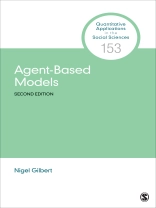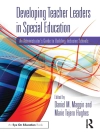Agent-based simulation has become increasingly popular as a modeling approach in the social sciences because it enables researchers to build models where individual entities and their interactions are directly represented. The Second Edition of Nigel Gilbert′s Agent-Based Models introduces this technique; considers a range of methodological and theoretical issues; shows how to design an agent-based model, with a simple example; offers some practical advice about developing, verifying and validating agent-based models; and finally discusses how to plan an agent-based modelling project, publish the results and apply agent-based modeling to formulate and evaluate social and economic policies.
Tabla de materias
Series Editor′s Introduction
Preface
Acknowledgments
About the Author
Chapter 1: The Idea of Agent-Based Modeling
1.1 Agent-Based Modeling
1.2 Some Examples
1.3 The Features of Agent-Based Modeling
1.4 Other Related Modeling Approaches
Chapter 2: Agents, Environments, and Timescales
2.1 Agents
2.2 Environments
2.3 Randomness
2.4 Time
2.5 Population Learning
Chapter 3: Designing an Agent-Based Model
3.1 Design Steps
3.2 An Example of Developing an Agent-Based Model
Chapter 4: Developing an Agent-Based Model
4.1 Modeling Toolkits, Libraries, Languages, Frameworks, and Environments
4.2 Using Net Logo to Build Models
4.3 Building the Collectivities Model Step by Step
4.4 Verification: Getting Rid of the Bugs
4.5 Validation
4.6 Techniques for Validation
Chapter 5: Using Agent-Based Models
5.1 Planning an Agent-Based Modeling Project
5.2 Reporting Agent-Based Model Research
5.3 Agent-Based Models for Public Policy
Resources
Societies and Associations
Journals
Mailing List and Web Sites
Glossary
References
Index
Sobre el autor
Nigel Gilbert is Professor of Sociology at the University of Surrey, Guildford, England. He is the author or editor of 34 books and many academic papers and was the founding editor of the Journal of Artificial Societies and Social Simulation. His current research focuses on the application of agent-based models to understanding social and economic phenomena, especially the emergence of norms, culture, and innovation. He obtained a doctorate in the sociology of scientific knowledge in 1974 from the University of Cambridge and has subsequently taught at the universities of York and Surrey in England. He is one of the pioneers in the field of social simulation and is past president of the European Social Simulation Association. He is a Fellow of the UK Academy of Social Sciences and of the Royal Academy of Engineering.












